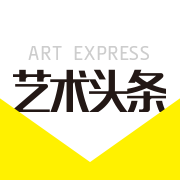
What is an iPad Doing on a Pedestal at a Chinese Art Museum?
2013-01-21 09:39:27 未知
The Ullens Center for Contemporary Art in Beijing has an intriguing new take on China’s place in the debate over Apple, iPhones, and the people who make them. While Americans hash out the moral ups and downs of having our electronics produced by Chinese factory hands, a young performance artist named Li Liao decided to jump into the middle of it. He got an assembly-line job making iPads, and forty-five days later he used his wages to buy one. As an exhibit, he put the iPad on a pedestal, tacked up his uniform and badges, and framed his contract. The effect, on a white gallery wall, is a strangely addictive ready-made tableau about the intersection of money, aspiration, and technology. I watched two young men separately linger over it for very different reasons: one was a hip Chinese gallerygoer in chunky glasses and a camel-hair coat, taking it all in; the other was a gallery security guard in a borrowed suit and white gloves. He was studying the details of the contract.
My edited Q. & A. with Li Liao is below, but first a note on the context: his piece “Consumption” is one of fifty commissioned works by fifty young artists, now on display at the UCCA, in a terrific new exhibition called “ON | OFF.” Curated by Bao Dong and Sun Dongdong, the show is the most ambitious survey of work by artists born after the death of Mao and the birth of the economic boom. Why call it “ON | OFF”? The name comes from the familiar display of one of China’s most popular proxy services, the kind of technical detour that people, young ones especially, use to get around the Great Firewall. And, as the organizers put it, these artists have “grown up in a society and culture beset by binaries, constantly toggling between extremes.”
Questions for Li Liao:
Where did you get a job, and how did this come about?
The factory I worked in was the Foxconn plant in Shenzhen (Longhua campus). I initially thought that it would be very hard to get a job, but, in fact, it was easy. I simply applied and passed the physical exam and the face-to-face interview. They had almost no requirements at all. As long as you’re literate with no significant physical problems, you get hired.
What was your specific role?
The section I worked in was called “prior welding A.O.I.” which means “automatic optical inspection before welding.” My title was “employee type one” which means “regular employee.” The actual work was looking for flawed scans of the P.C.B. [the printed circuit boards], and taking out the flaws for repair or whatever they needed.
What surprised you most about the job?
The thing that struck me was the sheer scale of the factory. The area is so large that by the time I left, I had still only been to the tiny area around the building where I worked, my dorm, and the gate. The factory district functions as a complete community, with canteens, supermarkets, chain restaurants, gyms, swimming pools, security offices, and even community colleges. It feels like once you enter, there’s no need to leave. As for the workshop itself, the security is as strict as I had imagined, with a security check every time you enter or leave.
The actual work was harder than I thought…Then there’s the issue of the schedule. You stay in the factory twelve hours a day—ten hours in the workshop, two hours for lunch and dinner. The work was repetitive and boring. Your relationship with your bosses is just about work. If we see each other outside the factory, without our uniforms, we probably wouldn’t recognize each other. The living environment is about on par with one of your worse university dorm rooms. There are four sets of triple bunk beds in each room. As long as I was there, our room had no more than eight people in it. But I only found that out by asking others, because it was rare for everyone in a room to be there at the same time; some work the day shift, some work the night shift, some quit after just a few days.
Did the experience change your perceptions of Apple one way or the other?
I worked at Foxconn for forty-five days. Before that, I was already an Apple consumer. I don’t think this experience changed my perception of the products; it only made one thing clearer: many of the products in this world actually have nothing to do with the workers who made them. To most of the workers there, Apple was just a name, a logo.
Any parting words for the factory?
Foxconn didn’t know I was making art. I don’t have anything to say to them. I will never go back to the factory to work.
Thanks to LuHan for help in translating this exchange.
(责任编辑:刘正花)
注:本站上发表的所有内容,均为原作者的观点,不代表雅昌艺术网的立场,也不代表雅昌艺术网的价值判断。

 在回溯中理解当代艺术“何以如此”
在回溯中理解当代艺术“何以如此” 雅昌指数 | 月度(2025年7月)策展人影响力榜单
雅昌指数 | 月度(2025年7月)策展人影响力榜单 对话 | “道法自然” 范一夫山水中的破界与归真
对话 | “道法自然” 范一夫山水中的破界与归真 吕晓:北京画院两个中心十年 跨学科带来齐白石研究新突破
吕晓:北京画院两个中心十年 跨学科带来齐白石研究新突破
全部评论 (0)